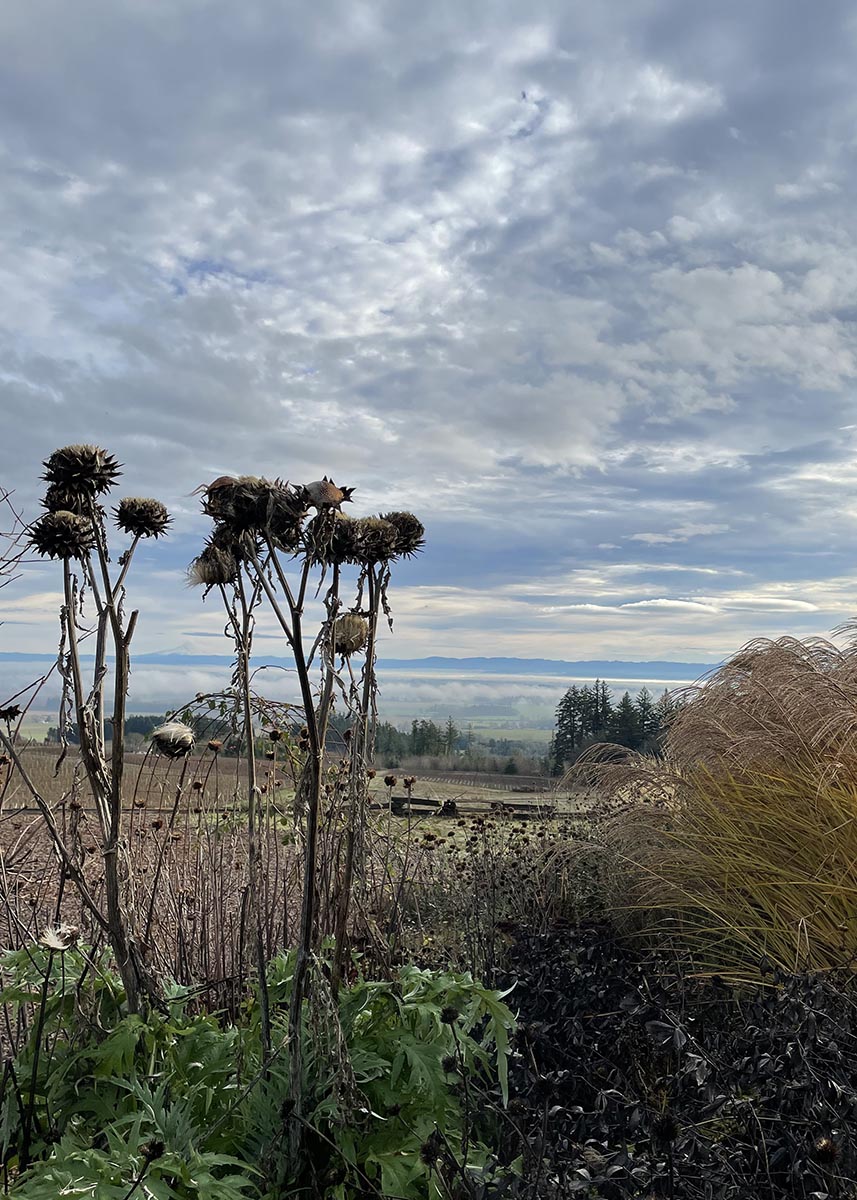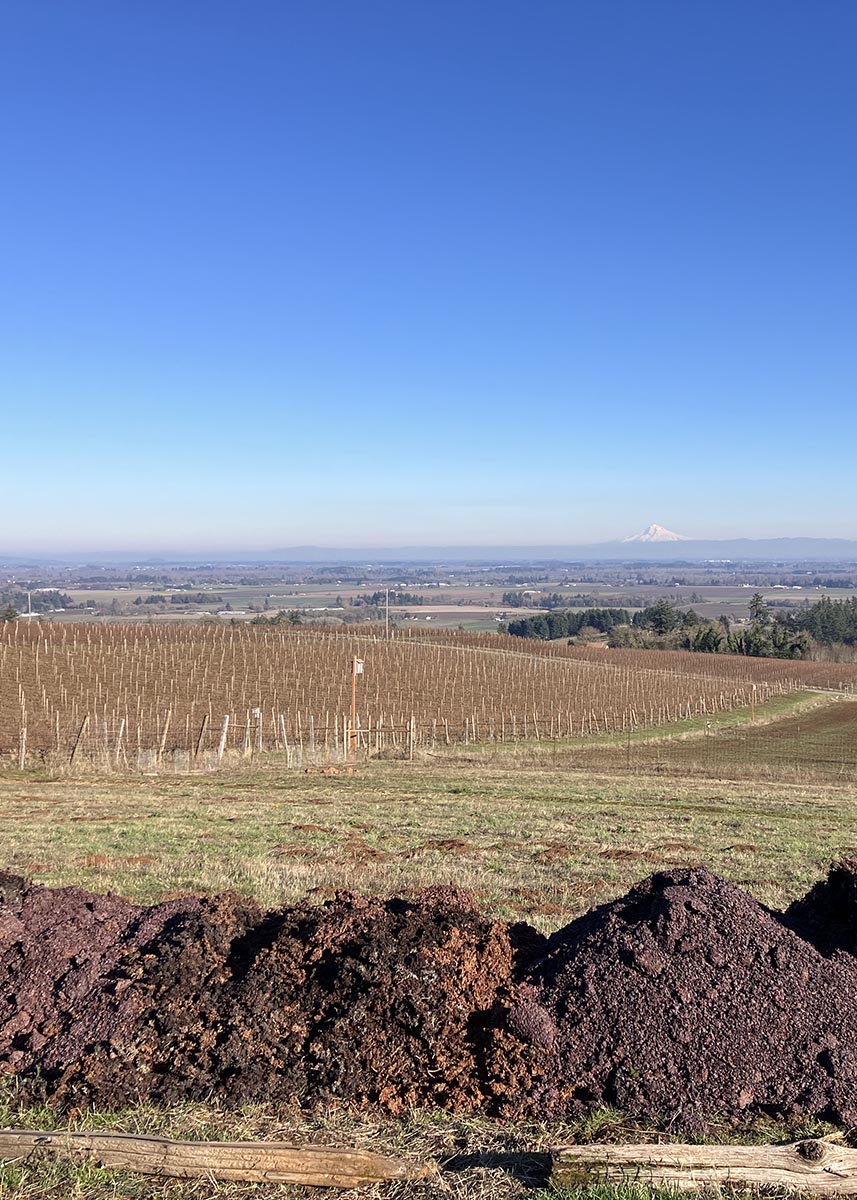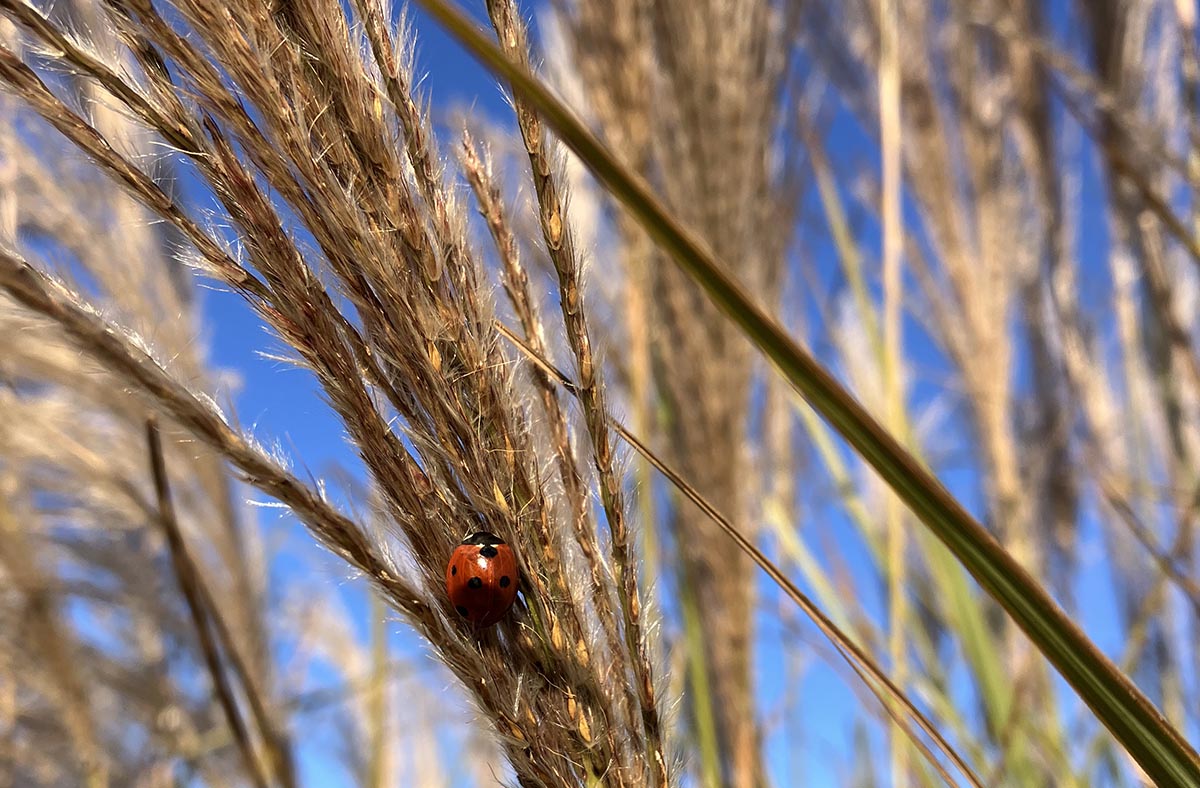“In our winter, a transformation happened. We read and worked and problem-solved and found new solutions. We changed our focus away from pushing through with normal life and towards making a new one. When everything is broken, everything is also up for grabs. That’s the gift of winter: it’s irresistible. Change will happen in its wake, whether we like it or not. We can come out of it wearing a different coat.” – Katherine May, Wintering
My coat sleeves and pant cuffs have a perpetual skim of mud this time of year. Winter in the Willamette Valley brings days of pouring rain. For those who work in the elements, it means constantly dragging rain boots through shocks of vibrant green grass in an attempt at cleaning. The garden is a skeleton of its summer glory, stems devoid of leaves lean against each other, hollow caricatures of their former selves. January is the time to observe the framework of our gardens. It permits gardeners to look at and learn what worked and what didn’t work in the year. In this time of quiet and rest, we can focus and dial in our gardens so that come spring, we can further our growth.
If there is one thing I know from gardening, it is that things never turn out how you expect. This is often the biggest gift and the greatest tragedy of the practice of tending a patch of soil. The stray sunflower that pops up in a path is a spectacle that you enjoy all the more from the sheer surprise of the display. Whereas the failed bed of green beans that is shaded out weighs heavily on your mind. Gardening can teach us that our mistakes are often opportunities. We see this in the compost pile, a place where the mess, decay, and mistakes of the garden so often land. Given time, these piles can take a new shape, breaking down and transforming into the earthy black humus of compost. These very mistakes can become the backbone of healthy soil and, thus, the life force of the garden.


This is the dao of compost, a humbling of my human need for control. A reminder that our mistakes can transform, they can be an opportunity to see what we can make from the mess. In the process of reshaping these mistakes we are granted new opportunities, a new seed bed. In this time of intention setting I have been setting aside my love for perfection, learning to embrace the mess of the garden, and of life. So often, the compost pile looks like a messy jumble of twigs, straw, and molding pumpkin skins. However, through this mess, in the heart of the pile, is a black nutrient-rich earth. Possibilities and the promise of hope are ever present in the compost pile. I take strength in this pattern and the knowledge that we can be renewed given time and a balance of ingredients. My intention in this new year is to cultivate and deepen my patience and expectations for garden spaces and for life. To use the dao of compost as my guide.
Oftentimes the new year is filled with messaging on being a “better” you. I’m finding that the better version of myself may be the one who accepts life’s imperfections. Who can wade out into a rain storm, willing to lift my face, a freckled, wrinkled, and imperfect visage, up to the sky, smiling through the mess of it all. It’s in the mess and ruckus of life, sliding through mud slicks, soil embedded under my nails, shoveling out a wheelbarrow of compost, that life can be most worth experiencing. Life is rarely without flaws, and we, infallible humans, are most certainly not perfect. Harmony comes when we recognize this, when we recreate this mess into new opportunities.
– With Love from the Garden
Shannon
Farm to Table
Our tasting room menu this month features bay leaves, radicchio, thyme, and beets.
